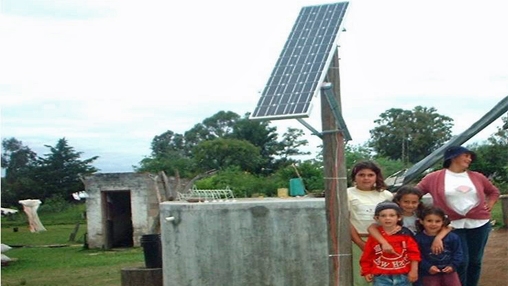"It literally changed my life," said Pablo Rodriguez, a rural worker who, for the first ever time, has 24 hour access to electricity in his home thanks to a photovoltaic (solar energy) panel, which he is paying for in 60 monthly installments of $150 pesos (around US$7).
What has made Pablo happier is that with electricity at home, his son can use the computer to do his homework --a story which is repeated throughout the 757 modest homes in Uruguay’s deep interior where residential photovoltaic systems have been installed.
This was just one of the National Energy Efficiency Program’s projects, which ended in 2011. With an investment of U.S. $ 22 million, the program achieved, in 6 years, cumulative savings equivalent to the total annual household consumption of a region such as Artigas.

